|
Books Should Be Free Loyal Books Free Public Domain Audiobooks & eBook Downloads |
|
|
Books Should Be Free Loyal Books Free Public Domain Audiobooks & eBook Downloads |
|
Fiction |
|---|
|
Book type:
Sort by:
View by:
|
By: Anthony Trollope (1815-1882) | |
|---|---|
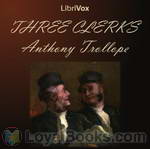 The Three Clerks
The Three Clerks
The Three Clerks was Trollope’s sixth novel and was written mostly in railway carriages, since his work for the Post Office still entailed a good deal of travelling; to make life easier for himself, Trollope had devised what he called his ‘tablet’, a square block which he rested upon his knees in such a way that he could write in complete comfort. The story is drawn from his memories of his work (as a clerk) at the GPO in St Martin-le-Grand, and it is considered the most autobiographical of Trollope’s novels – a story of the differing fortunes of 3 young men working at “Weights and Measures” and their relationships with a family of 3 sisters. | |
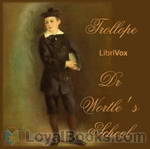 Doctor Wortle's School
Doctor Wortle's School
Anthony Trollope’s fortieth novel, published in 1881, concerns a respectable Christian boys’ school whose proprietor unknowingly hires a woman who apparently has two husbands: A devoted English scholar and an abusive drunkard from the American south. The book interweaves a sensitive and realistic exploration of Dr. Wortle’s moral dilemma with a humorous look at small-town gossip and--of course--a romance involving the doctor’s beautiful young daughter. ( | |
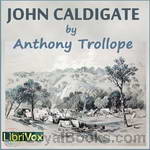 John Caldigate
John Caldigate
After a rather dissolute youth and having been disowned by his father, John Caldigate sets sail for Australia with his friend Dick Shand hoping to make his fortune in the goldfields in New South Wales. On the voyage, he meets Euphemia Smith and they conduct an indiscreet affair aboard. After various problems, Caldigate literally strikes gold and returns to Sydney where he meets Euphemia again and they settle, living as man and wife. After a time, they quarrel and Caldigate returns to England. On his return, Caldigate meets and marries a previous acquaintance, Hester Bolton, and they have a son... | |
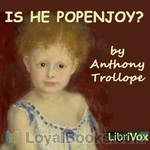 Is He Popenjoy ?
Is He Popenjoy ?
Trollope returns in Is He Popenjoy to two of his favorite subjects: property and inheritance. As in "Doctor Thorne," the issues are complicated by the specter of possible illegitimacy. Lord George Germain, a thoroughly respectable, upstanding, if not particularly bright younger son with new wife, rather expects to inherit a title, since his vicious and dissolute elder brother, the Marquis of Brotherton, who lives in Italy, shows no signs of settling down and producing heirs. Then comes a thunderbolt in the form of a letter from the Marquis suddenly claiming that he has, late in life, married an Italian widow and sired a son... | |
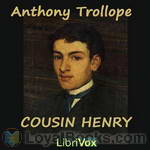 Cousin Henry
Cousin Henry
Indefer Jones struggles to name an heir to his estate. Will he choose his favorite niece, Isabel, or a male heir? The story turns on the trouble that arises when Indefer fails to tell anyone his final decision before passing away. | |
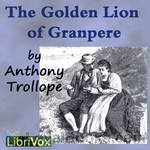 The Golden Lion of Granpere
The Golden Lion of Granpere
Time to do a short Continental trip with Trollope and see if we agree with Walpole. "...not only Trollope's very best shorter book, but one of the most charming idylls in English literature. - . . It has all the colour and richness and cohesion of something done irresistibly." -Walpole . The storyline is simple - boy meets girl - parents object - trials and tribulations follow - and then the story reaches it's conclusion - but you will need to find what that is for yourself ! | |
 Mr Scarborough's Family
Mr Scarborough's Family
MR SCARBOROUGH, wealthy owner of Tretton Park in Staffordshire, is dying. His eldest son and heir Mountjoy has gambled away his inheritance to avaricious money-lenders who hold post-obits to the entire value of the estate.Then Mr. Scarborough declares Mountjoy illegitimate. He claims that he only married his wife shortly before the birth of his second son Augustus, thus making him the real heir. Is this the truth ? - or a ploy to save the estate falling into the hands of some rather shady money lenders ? ....... | |
 Castle Richmond
Castle Richmond
| |
 Kept in the Dark
Kept in the Dark
Kept in the Dark is a novel by the 19th century English novelist Anthony Trollope. It was published in eight monthly installments in 1882, and also in book form in the same year. Cecilia Holt ends her engagement to Sir Francis Geraldine because of his indifference to her; she goes abroad and meets Mr George Western, who has been jilted by a beautiful girl. They marry but she does not tell him she has been previously engaged, although he has told her his story. When Western is informed of the previous engagement by Sir Francis, Western leaves his wife and goes abroad; she returns to Exeter to live with her mother... | |
 The Fixed Period
The Fixed Period
| |
 Aaron Trow
Aaron Trow
What is it like to be a fox hunted by hounds? We find out through the senses of an escaped convict as he struggles to free himself from would-be captors. The struggle is brutal. In the end, we are left wondering which person really wins--the pursued or the pursuer. Or perhaps which one is now the pursuer, which the pursued. | |
 An Old Man's Love
An Old Man's Love
This was Trollope's last completed novel, and he may have acquired his sympathy for older lovers with age! A not-so-very-old man, Mr. Whittlestaff, dearly loves Mary Lawrie, the girl he provides a home for after her father's death. He wishes to marry her, and she reluctantly accepts him, but warns him of her deep regard for a young man she had known years earlier. That Mr. Gordon had not exactly engaged her, but had gone off to seek his fortune and had not communicated with Mary ever since. Shortly after Mary accepts Mr. Whittlestaff, Gordon shows up. Trollope works out a final arrangement which resolves the quandary, but not with comfort. (Arnold Banner) | |
 An Unprotected Female at the Pyramids
An Unprotected Female at the Pyramids
| |
 Macdermots of Ballycloran
Macdermots of Ballycloran
This is the story of the Macdermots of Ballycloran the story is about the tragic demise of a landowning family. Larry Macdermot lives in a dilapidated mansion in Co. Leitrim, whose mortgage to Joe Flannelly he cannot keep up. Enmity between the Macdermot and Flannelly families is sharpened by son Thady's having declined to marry Joe Flannelly's daughter, Sally. Macdermot's daughter, Feemy, is herself seduced by the locally hated English police officer, Captain Myles Ussher. This was Trollope's first published novel, which he began in September 1843 and completed by June 1845. However, it was not published until 1847. | |
 The Courtship of Susan Bell
The Courtship of Susan Bell
| |
 The Mistletoe Bough
The Mistletoe Bough
| |
 The Man Who Kept His Money in a Box
The Man Who Kept His Money in a Box
| |
 Struggles of Brown, Jones, and Robinson
Struggles of Brown, Jones, and Robinson
Billed as a satire concerning the dishonest advertising and business practices of the day, it tells the tale of an upstart clothing business doomed from the get-go to utter failure. Its senior partner (the elderly Brown, who provides the investment) is far too timid for business. His son-in-law (Jones, who runs the store) is stealing from the till, and the junior partner, Robinson (who writes advertisements for the store) is so obsessed with the idea that advertising alone will drive the business, he uses up every last penny of the capital investment in a series of increasingly ludicrous ad campaigns and publicity stunts... | |
 The Kellys and the O'Kellys
The Kellys and the O'Kellys
| |
 The Parson's Daughter of Oxney Colne
The Parson's Daughter of Oxney Colne
| |
 A Ride Across Palestine
A Ride Across Palestine
| |
 Ralph the Heir
Ralph the Heir
As usual, Trollope creates a nice variety of characters of different English classes, sentiments and positions. The primary themes are the inheritance of property, extravagance or reason in the spending of assets, the mating of young people, and the electoral practices of the time. The election chapters are based on Trollope's own experiences when he ran for Parliament.There are, of course, many subplots which allow Trollope to express, through dialog, his opinions about greed, snobbery, work ethics and dandyism... | |
 Nina Balatka
Nina Balatka
A romance set in Prague between a Catholic and a Jew. In this short novel, Trollope moves away from his usual milieu to explore a theme which has universal resonance. | |
 Returning Home
Returning Home
| |
 Miss Sarah Jack of Spanish Town, Jamaica
Miss Sarah Jack of Spanish Town, Jamaica
| |
 Chateau of Prince Polignac
Chateau of Prince Polignac
| |
 Relics of General Chasse
Relics of General Chasse
| |
 The House of Heine Brothers
The House of Heine Brothers
| |
 La Mere Bauche
La Mere Bauche
| |
 John Bull on the Guadalquivir
John Bull on the Guadalquivir
| |
 O'Conors of Castle Conor
O'Conors of Castle Conor
| |
 Mrs. General Talboys
Mrs. General Talboys
| |
 George Walker at Suez
George Walker at Suez
| |
 La Vendée
La Vendée
| |
By: Anton Chekhov (1860-1904) | |
|---|---|
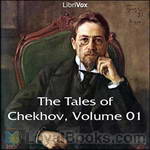 The Tales of Chekhov
The Tales of Chekhov
This is the first of thirteen volumes of Anton Chekhov’s short stories, translated by Constance Garnett. Anton Chekhov was a Russian doctor who turned to fiction as a hobby, and quickly blossomed into one of the masters of the short story genre. Though he is arguably best known for his dramatic works, such as The Cherry Orchard, his stories are widely considered to be some of the most perfect examples of short fiction ever written. Constance Black Garnett was an English housewife who taught herself Russian as a hobby, and subsequently introduced the English-speaking world to some of the greatest Russian authors, including Chekhov and Dostoevsky... | |
 The Cherry Orchard
The Cherry Orchard
The Cherry Orchard is Russian playwright Anton Chekhov's last play. It premiered at the Moscow Art Theatre 17 January 1904 in a production directed by Constantin Stanislavski. Chekhov intended this play as a comedy and it does contain some elements of farce; however, Stanislavski insisted on directing the play as a tragedy. Since this initial production, directors have had to contend with the dual nature of this play. The play concerns an aristocratic Russian woman and her family as they return to the family's estate (which includes a large and well-known cherry orchard) just before it is auctioned to pay the mortgage... | |
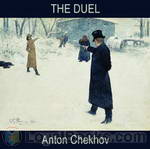 The Duel
The Duel
The plot centres around Laevsky, who is living in a small seaside town in the Caucasus after running away with another man's wife, Nadyezhda Fyodorovna, amid dreams of starting a new life.The dreams have come to nothing as Laevsky idles away his life drinking and playing cards, and Nadyezhda begins to have other affairs.Laevsky's scheme to run away again, this time without his mistress, brings him into conflict with the rationalist Von Koren, who believes in Darwinian principles of natural selection and extinction of the weak and useless.Matters come to a head when an outburst from Laevsky leads to a duel. Von Koren is determined to teach Laevksy a lesson.(Introduction by Phil) | |
 The Wife, and other stories
The Wife, and other stories
| |
 The Witch and other stories
The Witch and other stories
| |
 The Schoolmistress, and other stories
The Schoolmistress, and other stories
| |
 Schoolmaster and Other Stories
Schoolmaster and Other Stories
Anton Chekhov, perhaps better known as a world famous classical playwright for works such as "Uncle Vanya" and "The Cherry Orchard" was also a prolific short story writer. "The Schoolmaster and Other Stories" is one of several of his collections. It's a compilation of 30 short stories. Some bizarre, some comical but all very interesting. | |
By: Antonio Colmenero de Ledesma (d. 17th century) | |
|---|---|
 Chocolate: or, An Indian Drinke
Chocolate: or, An Indian Drinke
The Author sings the praises of Chocolate. “By the wise and Moderate use whereof, Health is preserved, Sicknesse Diverted, and Cured, especially the Plague of the Guts; vulgarly called _The New Disease_; Fluxes, Consumptions, & Coughs of the Lungs, with sundry other desperate Diseases. By it also, Conception is Caused, the Birth Hastened and facilitated, Beauty Gain’d and continued.” | |
By: Antonio Fogazzaro (1842-1911) | |
|---|---|
 The Saint
The Saint
| |
By: Arabella Buckley (1840-1929) | |
|---|---|
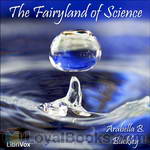 The Fairyland of Science
The Fairyland of Science
“I have promised to introduce you today to the fairy-land of science — a somewhat bold promise, seeing that most of you probably look upon science as a bundle of dry facts, while fairy-land is all that is beautiful, and full of poetry and imagination. But I thoroughly believe myself, and hope to prove to you, that science is full of beautiful pictures, of real poetry, and of wonder-working fairies…” (From the Introduction to The Fairyland of Science) | |
By: Arnold Bennett (1867-1931) | |
|---|---|
 The Card
The Card
The ‘Card’ in question is Edward Henry Machin – his mother called him ‘Denry.’This light-hearted story is of his rise from humble beginnings as the son of a washerwoman and sempstress in the last quarter of the nineteenth century, in the pottery towns (which Arnold Bennett christened ‘The Five Towns’) of the English Midlands; how, by his own wits, enterprise and ‘nerve’ he rose to wealth, married bliss and public recognition as the youngest-ever mayor of his home town. “’And yet,’ demanded Councillor Barlow, ‘what’s he done? What great cause is he identified with?’‘He’s identified,’ said the speaker, ‘with the great cause of cheering us all up’.” | |
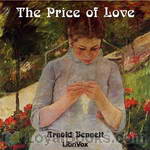 The Price of Love
The Price of Love
Rachel Louise Fleckring works for the elderly Mrs Maldon, and although with the woman for only a short time, she is taken into the heart of the family. She falls in love with one of Mrs Maldon’s descendents, but along the way, she has to come to terms with the fact that he isn’t, perhaps, the perfectly honest man she thought he was. | |
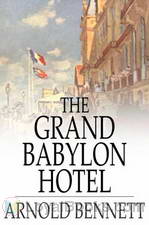 The Grand Babylon Hotel
The Grand Babylon Hotel
Theodore Racksole, a rich American multi-millionaire, buys the Grand Babylon Hotel, a luxurious hotel in London, as a whim – and then finds out there are strange things going on – a German prince is supposed to arrive but never turns up, someone is found murdered in the hotel, but then the body disappears. With the help of his independent daughter Nella and another German prince, Racksole sets out to solve the mystery.Bennett wrote this as a 15-part serial, for a lark, in 15 days, and sold it for 100 pounds. It first appeared in The Golden Penny in 1902, which described it as “the most original, amusing, and thrilling serial written in a decade”. | |
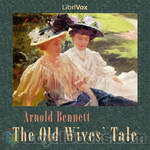 The Old Wives' Tale
The Old Wives' Tale
The Old Wives’ Tale is a novel by Arnold Bennett, first published in 1908. It deals with the lives of two very different sisters, Constance and Sophia Baines, following their stories from their youth, working in their mother’s draper’s shop, into old age. It is generally regarded as one of Bennett’s finest works. It covers a period of about 70 years from roughly 1840 to 1905, and is set in Burslem and Paris. | |
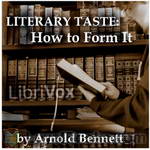 Literary Taste: How to Form It
Literary Taste: How to Form It
Arnold Bennett describes a method for enjoying literature, and suggests the contents of a comprehensive library. Chapters 1-10 and 14 describe his method for learning to enjoy literature. Chapters 11, 12, and 13 contain detailed lists of the 337 volumes required to complete a comprehensive library of English works. This reading is from the 1913 version at Project Gutenberg, and so does not contain the revisions made by Swinnerton for the 1939 edition, which included authors of the early Twentieth Century. Swinnerton’s revisions are available from Wikipedia. | |
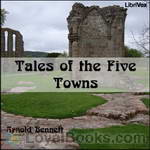 Tales of the Five Towns
Tales of the Five Towns
This is a selection of short stories recounting, with gentle satire and tolerant good humour, the small town provincial life at the end of the nineteenth century, based around the six towns in the county of Staffordshire, England, known as the Potteries. Arnold Bennett chose to fictionalize these towns by changing their names and omitting one (Fenton) as he apparently felt that “Five Towns” was more euphonious than “Six Towns”. The real town names which are thinly disguised in the novel are: Hanley, Longton, Burslem and Tunstal, the fifth, Stoke became “Knype”... | |
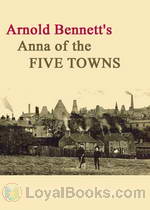 Anna of the Five Towns
Anna of the Five Towns
The plot centers on Anna Tellwright, daughter of a wealthy but miserly and dictatorial father, living in the Potteries area of Staffordshire, England. Her activities are strictly controlled by the Methodist church. Having escaped her father by marrying the respectable and attractive Henry, she attempts in vain to help Willy, son of a drunken and bankrupt business associate of her father's. | |
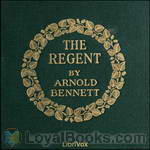 The Regent
The Regent
'The Regent' is, if not a sequel to 'The Card', then a 'Further Adventures of' the eponymous hero of that novel.Denry Machin is now forty-three and begins to feel that he is getting old, that making money and a happy home life are not enough and that he has lost his touch as the entrepreneur and entertainer of the 'Five Towns'.In fact, as he says to himself 'What I want is change - and a lot of it too!'. A chance meeting at the local theatre leads to his going to London and then... | |
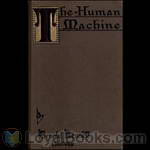 The Human Machine
The Human Machine
Bennett asks us to consider our brains as the most wonderful machine, a machine which is the only thing in this world that we can control. As he writes: "I am simply bent on calling your attention to a fact which has perhaps wholly or partially escaped you -- namely, that you are the most fascinating bit of machinery that ever was."As ever, his prose is honeyed, his thoughts inspired, and his advice as relevant today as when it was written. (Introduction by Ruth Golding) | |
 Hilda Lessways
Hilda Lessways
This book is the second in Bennett’s four books about life in the Five Towns (the real life Potteries in Staffordshire). It tells the story of Hilda before her marriage to Edwin Clayhanger (from the first book). Bennett explores Hilda's ambition to make a career for herself, her coming of age and her working experiences as a shorthand clerk and keeper of a lodging house in London and Brighton. He also shows her intensifying relationship with the enigmatic George Cannon that ends in her disastrous bigamous marriage and pregnancy, and finally her reconciliation with Edwin Clayhanger | |
 Clayhanger
Clayhanger
This first of a trilogy of novels is a coming-of-age story set in the Midlands of Victorian England, following Edwin Clayhanger as he leaves school, takes over the family business, and falls in love.The books are set in Bennett's usual setting of "the 5 Towns", a thinly-disguised version of the six towns of "the Potteries" which amalgamated (at the time of which Bennett was writing) into the borough (and later city) of Stoke-on-Trent.In one of the earlier chapters in the book, Bennett writes that... | |
 Ghost: A Modern Fantasy
Ghost: A Modern Fantasy
The novel opens with Carl Foster, a recently qualified doctor, coming to London to try and make his fortune. He meets a famous tenor, Signor Alresca, who suffers a dreadful injury backstage and Foster tends to him. He thus meets the lead soprano, Rosetta Rosa, and falls hopelessly in love with her.Alresca takes Foster under his wing and they travel to Alresca's home in Bruges. It is clear to Foster that Alresca has some strange obsession. Foster also notices a stranger who seems to be dogging his footsteps.Things take an even more sinister turn when Alresca inexplicably dies. . . | |
 Riceyman Steps
Riceyman Steps
Arnold Bennet's masterly novel is a gritty tale about a bookseller whose life and love of a woman are afflicted by miserliness. It is set in London's characterful Clerkenwell district shortly after the First World War. - Summary by Anthony Ogus | |
By: Arthur B. Reeve | |
|---|---|
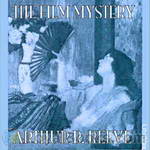 The Film Mystery
The Film Mystery
The Film Mystery is one of eighteen detective novels by Arthur B. Reeve starring his best known character Professor Craig Kennedy and his trusty sidekick Walter Jameson, a newspaper reporter. The pair bears an unmistakable resemblance to the more famous British master sleuth and his doctor friend. The setting of this mystery is the early days of movie making, and the murder victim is Stella Lamar, “the beautiful idol of the screen, beloved of millions”, who collapses and dies during the filming of a scene for her latest movie. | |
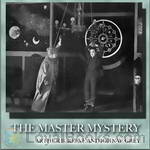 The Master Mystery
The Master Mystery
While Harry Houdini didn’t rise to fame as a screen actor, silent film makers of the day sought to capitalize on his fame. The Master Mystery was Houdini’s first such attempt, and it was embraced by the viewing public, leading to other screen roles following. The hero (or superhero) is Quentin Locke, scientist, agent of the U.S. Justice Department, and not surprisingly, an escape artist extraordinaire. The Master Mystery follows agent Locke through many pitfalls, in true serial fashion, as he... | |
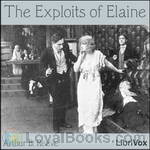 The Exploits Of Elaine
The Exploits Of Elaine
The Exploits of Elaine It tells the story of a young woman named Elaine who, with the help of a detective, tries to find the man, known only as “The Clutching Hand”, who murdered her father. (Wikipedia) | |
 The Silent Bullet
The Silent Bullet
The many adventures of Professor Craig Kennedy were chronicled by Arthur B. Reeve (October 15, 1880 - August 9, 1936). Reeve was an American mystery writer who created 82 Craig Kennedy mystery stories. The stories have a very Sherlock Holmes type feel, In fact Kennedy has been referred to as the "American Shelock Holmes". Along with his reporter friend, Walter Jameson, Kennedy solves many crimes and unveils mysteries using science. Each story features a facinating look at life in the early 20th century, and even includes some action along the way. | |
 Poisoned Pen
Poisoned Pen
The many adventures of Professor Craig Kennedy were chronicled by Arthur B. Reeve (October 15, 1880 - August 9, 1936). Reeve was an American mystery writer who created 82 Craig Kennedy mystery stories. The stories have a very Sherlock Holmes type feel, In fact Kennedy has been referred to as the "American Sherlock Holmes". Along with his reporter friend, Walter Jameson, Kennedy solves many crimes and unveils mysteries using science. This book contains twelve of Professor Kennedy's adventures. The interesting thing about these stories is Kennedy uses newly discovered science from his time period, which we take for granted today... | |
 Social Gangster
Social Gangster
This is a collection of 12 detective short stories by American fiction writer Arthur B. Reeve . What makes these stories so interesting is that each crime is solved with the Sherlock-Holmes-like clever deductions and scientific methods of Professor Craig Kennedy. - Summary by Sonia | |
By: Arthur Beverley Baxter (1891-1964) | |
|---|---|
 The Parts Men Play
The Parts Men Play
| |
By: Arthur Cheney Train (1875-1945) | |
|---|---|
 The Confessions of Artemas Quibble Being the Ingenuous and Unvarnished History of Artemas Quibble
The Confessions of Artemas Quibble Being the Ingenuous and Unvarnished History of Artemas Quibble
| |
By: Arthur G. Hill | |
|---|---|
 The Terrible Answer
The Terrible Answer
| |
By: Arthur Griffiths (1838-1908) | |
|---|---|
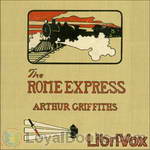 The Rome Express
The Rome Express
The passengers in the sleeping car of the Rome Express were just woken and informed that they will reach Paris soon, and a general bustle fills the train. Only one passenger cannot be awoken by the porter, no matter how loudly he knocks on the compartment door. At last, when the door is forced open, the occupant of the compartment is found dead - stabbed to the heart! The murderer must be found among the passengers... | |
 The Thin Red Line; and Blue Blood
The Thin Red Line; and Blue Blood
| |
By: Arthur Hornblow (1865-1942) | |
|---|---|
 The Third Degree A Narrative of Metropolitan Life
The Third Degree A Narrative of Metropolitan Life
| |
 The Mask A Story of Love and Adventure
The Mask A Story of Love and Adventure
| |
By: Arthur J. Rees (1872-1942) | |
|---|---|
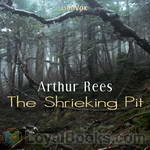 The Shrieking Pit
The Shrieking Pit
The Shrieking Pit is one of Arthur Rees's earlier works, and is a good old fashioned murder mystery story. Grant Colwyn, a private detective, is holidaying in East Anglia when he notices a young man at a nearby table behaving peculiarly. The young man later leaves the hotel without paying his bill, and turns up in a nearby hamlet in the Norfolk marshes where he takes lodgings at the village inn. The next day, another guest at the inn is found dead, and the young man is missing. Can Colwyn sort out the mystery and prove the young man's innocence one way or the the other? | |
By: Arthur Leo Zagat (1896-1949) | |
|---|---|
 The Great Dome on Mercury
The Great Dome on Mercury
| |
By: Arthur M. Winfield (1862-1930) | |
|---|---|
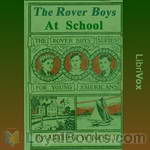 The Rover Boys at School
The Rover Boys at School
First of the famous Rover Boys books by future Hardy Boys creator Edward Stratemeyer (under the pseudonym Arthur M Winfield), this is an introduction to the fun-loving teenage Rover Brothers -- Dick, Tom & Sam. Virtual orphans, they are sent by their prudish Uncle Randolph to a military boarding school and their adventures soon begin! | |
 Rover Boys in the Jungle
Rover Boys in the Jungle
Third entry in the then-popular boys' adventure series has the Rover brothers (Tom, Dick, & Sam) heading to Africa to search for their long-missing father, after a few more adventures at their upstate New York boarding school, Putnam Hall. | |
 Rover Boys Out West
Rover Boys Out West
Despite the title, the Rover Brothers spend several chapters -- over half the book -- back East, against arch-nemeses Josiah Crabtree and the Baxter family. Formulaic fun was dated even by the 1940's when Orson Welles satirized it on the radio. | |
By: Arthur Machen (1863-1947) | |
|---|---|
 The Great God Pan
The Great God Pan
"The Great God Pan" is a novella written by Arthur Machen. A version of the story was published in the magazine Whirlwind in 1890, and Machen revised and extended it for its book publication (together with another story, "The Inmost Light") in 1894. On publication it was widely denounced by the press as degenerate and horrific because of its decadent style and sexual content, although it has since garnered a reputation as a classic of horror. Machen’s story was only one of many at the time to focus on Pan as a useful symbol for the power of nature and paganism... | |
 The Angels of Mons
The Angels of Mons
The Angels of Mons is a popular legend about a group of angels who supposedly protected members of the British army in the Battle of Mons at the outset of World War I. The story is fictitious, developed through a combination of a patriotic short story by Arthur Machen, rumours, mass hysteria and urban legend, claimed visions after the battle and also possibly deliberately seeded propaganda. | |
 The House of Souls
The House of Souls
| |
By: Arthur Mee (1875-1943) | |
|---|---|
 The World's Greatest Books — Volume 01 — Fiction
The World's Greatest Books — Volume 01 — Fiction
| |
By: Arthur Morrison (1863-1945) | |
|---|---|
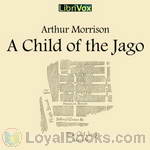 A Child of the Jago
A Child of the Jago
Arthur George Morrison (1 November 1863, Poplar, London - 4 December 1945, Chalfont St Peter, Buckinghamshire) was an English author and journalist known for his realistic novels about London's East End and for his detective stories. Morrison's most famous novel is A Child of the Jago, published in 1896, The novel described in graphic detail living conditions in the East End, including the permeation of violence into everyday life (it was a barely fictionalized account of life in the Old Nichol Street Rookery). (Introduction by Wikipedia and Algy Pug) | |
 The Red Triangle Being Some Further Chronicles of Martin Hewitt, Investigator
The Red Triangle Being Some Further Chronicles of Martin Hewitt, Investigator
| |
By: Arthur Preston Hankins (1880-1932) | |
|---|---|
 The She Boss A Western Story
The She Boss A Western Story
| |
By: Arthur Ransome (1884-1967) | |
|---|---|
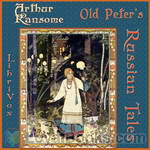 Old Peter's Russian Tales
Old Peter's Russian Tales
Arthur Ransome is best known for his ‘Swallows and Amazons’ series of children’s books. This is the only example of his fiction in the public domain. These stories are all from Russian folklore, some comparatively well-known, others less so. Ransome spent some years in Russia as a newspaper correspondent fir the ‘Daily News’ and the ‘Manchester Guardian’ and was peripherally involved in the revolution. In the late twenties he married Evgenia Shvelpina, Trotsky’s secretary, retired from newspapers and started writing his children’s books. | |
By: Arthur Schnitzler (1862-1931) | |
|---|---|
 Casanova's Homecoming
Casanova's Homecoming
| |
 The Dead Are Silent 1907
The Dead Are Silent 1907
| |
By: Arthur Scott Bailey (1877-1949) | |
|---|---|
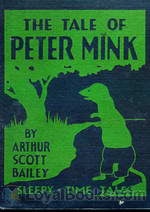 The Tale of Peter Mink
The Tale of Peter Mink
Arthur Scott Bailey (1877 – 1949) was author of more than forty children’s books. Bailey’s writing has been described thusly by the Newark Evening News: “Mr. Bailey centered all his plots in the animal, bird and insect worlds, weaving natural history into the stories in a way that won educator’s approval without arousing the suspicions of his young readers. He made it a habit to never ‘write down’ to children and frequently used words beyond the average juvenile vocabulary, believing that youngsters respond to the stimulus of the unfamiliar.” | |
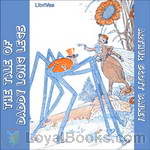 The Tale Of Daddy Long Legs
The Tale Of Daddy Long Legs
Summary text (Arthur Scott Bailey (1877 – 1949) was author of more than forty children’s books. He was born on November 15, 1877, in St. Albans, Vermont, United States, the second child of Winfield Scott Bailey and Harriet Sarah Goodhue. THERE was great excitement in the neighborhood of Farmer Green’s house. Rusty Wren had found some strange tracks. And nobody knew whose they were. Now, when they were puzzled like that the field- and forest-folk usually went straight to Mr. Crow for advice... | |
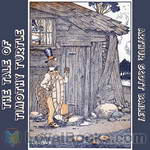 The Tale of Timothy Turtle
The Tale of Timothy Turtle
One of Bailey’s “Sleepy-Time Tales,” this is the story of Timothy Turtle, a grumpy old turtle trying to live his life alongside Black Creek. Timothy’s adventures lead him to encounters with other Black Creek creatures, Fatty Coon, Mr. Crow, Brownie Beaver, Peter Mink, Ferdinand Frog, and even the local boy, Johnnie Green. | |
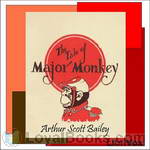 The Tale of Major Monkey
The Tale of Major Monkey
Arthur Scott Bailey was the author of more than forty children’s books.Mr. Bailey centered all his plots in the animal, bird and insect worlds, weaving natural history into the stories in a way that won educator’s approval without arousing the suspicions of his young readers. | |
 The Tale of Benny Badger
The Tale of Benny Badger
Mr. Bailey centered all his plots in the animal, bird and insect worlds, weaving natural history into the stories in a way that won educator’s approval without arousing the suspicions of his young readers. He made it a habit to never ‘write down’ to children and frequently used words beyond the average juvenile vocabulary, believing that youngsters respond to the stimulus of the unfamiliar.” | |
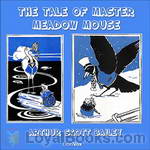 The Tale of Master Meadow Mouse
The Tale of Master Meadow Mouse
This volume in the series, Sleepy-Time Tales, follows the adventures of Master Meadow Mouse as he moves his home to various (safer) places, and tells how he cleverly avoids creatures such as Fatty Coon, Mr. Crow, and Mr. Great Blue Heron, just to name a few. | |
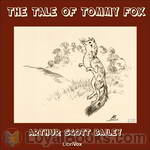 The Tale of Tommy Fox
The Tale of Tommy Fox
Bailey’s writing has been described thusly by the Newark Evening News: “Mr. Bailey centered all his plots in the animal, bird and insect worlds, weaving natural history into the stories in a way that won educator’s approval without arousing the suspicions of his young readers. He made it a habit to never ‘write down’ to children and frequently used words beyond the average juvenile vocabulary, believing that youngsters respond to the stimulus of the unfamiliar. (Wikipedia) | |
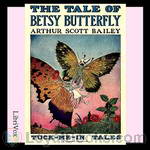 The Tale of Betsy Butterfly
The Tale of Betsy Butterfly
Arthur Scott Bailey (1877 – 1949) was the author of more than forty children’s books. “Mr. Bailey centered all his plots in the animal, bird and insect worlds, weaving natural history into the stories in a way that won educator’s approval without arousing the suspicions of his young readers. He made it a habit to never ‘write down’ to children and frequently used words beyond the average juvenile vocabulary, believing that youngsters respond to the stimulus of the unfamiliar.” (Wikipedia) | |